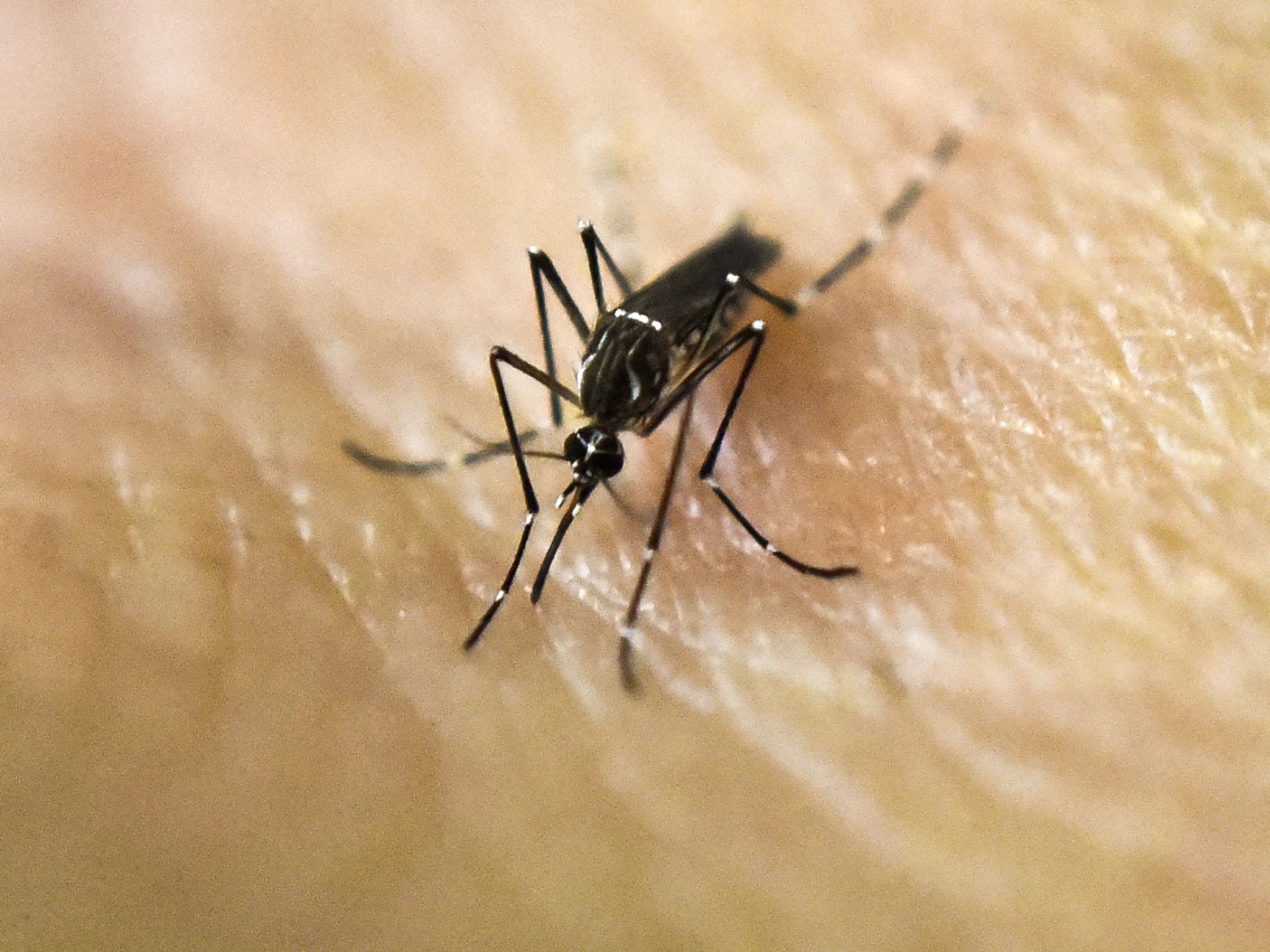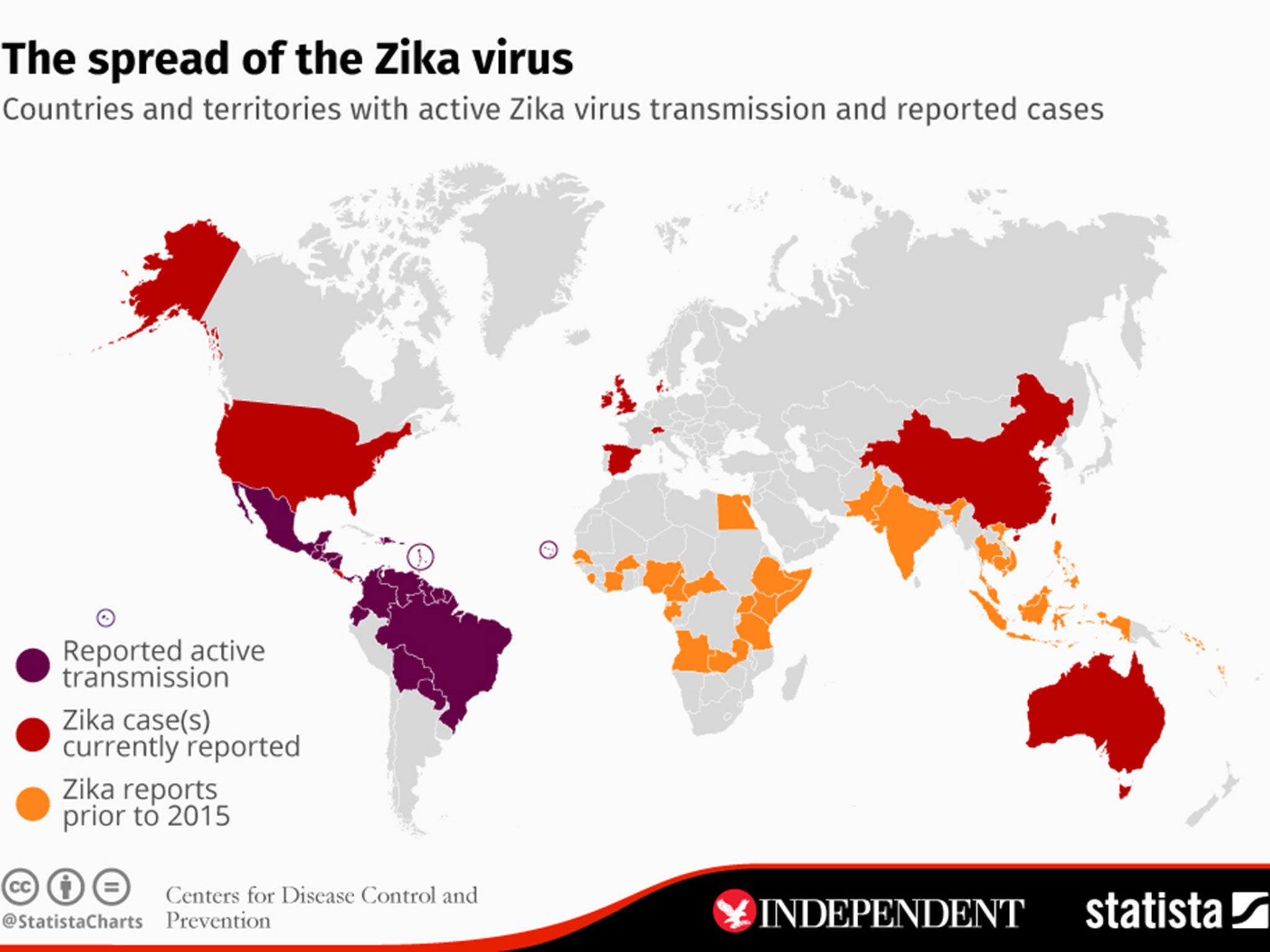The Independent's journalism is supported by our readers. When you purchase through links on our site, we may earn commission.
Zika virus: Scientists 'on the verge' of linking disease to paralysing Guillain-Barre syndrome
Scientists found persistent infection from Zika can trigger a chain reaction, causing the immune system to go rogue and attack the nerves

Your support helps us to tell the story
From reproductive rights to climate change to Big Tech, The Independent is on the ground when the story is developing. Whether it's investigating the financials of Elon Musk's pro-Trump PAC or producing our latest documentary, 'The A Word', which shines a light on the American women fighting for reproductive rights, we know how important it is to parse out the facts from the messaging.
At such a critical moment in US history, we need reporters on the ground. Your donation allows us to keep sending journalists to speak to both sides of the story.
The Independent is trusted by Americans across the entire political spectrum. And unlike many other quality news outlets, we choose not to lock Americans out of our reporting and analysis with paywalls. We believe quality journalism should be available to everyone, paid for by those who can afford it.
Your support makes all the difference.Scientists are on the verge of confirming the Zika virus is the cause of a paralysing condition.
The mosquito-borne virus is believed to cause brain damage and make a child's head to grow smaller than expected.
Colombian researchers told Sky News they have detected the virus lingering in the blood of five patients with the paralysing Guillain-Barre syndrome.
They found persistent infection from the Zika virus can trigger a chain reaction, causing the immune system to go rogue and attack the nerves, resulting in the paralysis.
Dr Andreas Zea, a neurologist in Cali closely involved in the joint Colombian-American research project, told Sky News every additional case has made the link more certain.
"In my mind it is related to Zika," he said.
"It is terrible. It's a mosquito. Only one bite and 15, 20 days later you are going to be in intensive care. These people have families."

While the hospital would normally see a couple of Guillain-Barre cases a month, the number of cases diagnosed has doubled in the wake of the Zika epidemic.
With Cali expecting another 20,000 patients with the Zika virus over the next four months, doctors are preparing for the numbers of Guillain-Barre to rise by 10 times.
Eight countries in South and Central America have reported a rise in Guillain-Barre - French Polynesia, Brazil, El Salvador, the French territory of Martinique, Colombia, Suriname, the Bolvarian Republic of Venezuela, and Honduras.
The World Health Organisation warns if the link with Zika is confirmed, the human and social consequences "will be staggering".
Join our commenting forum
Join thought-provoking conversations, follow other Independent readers and see their replies
Comments